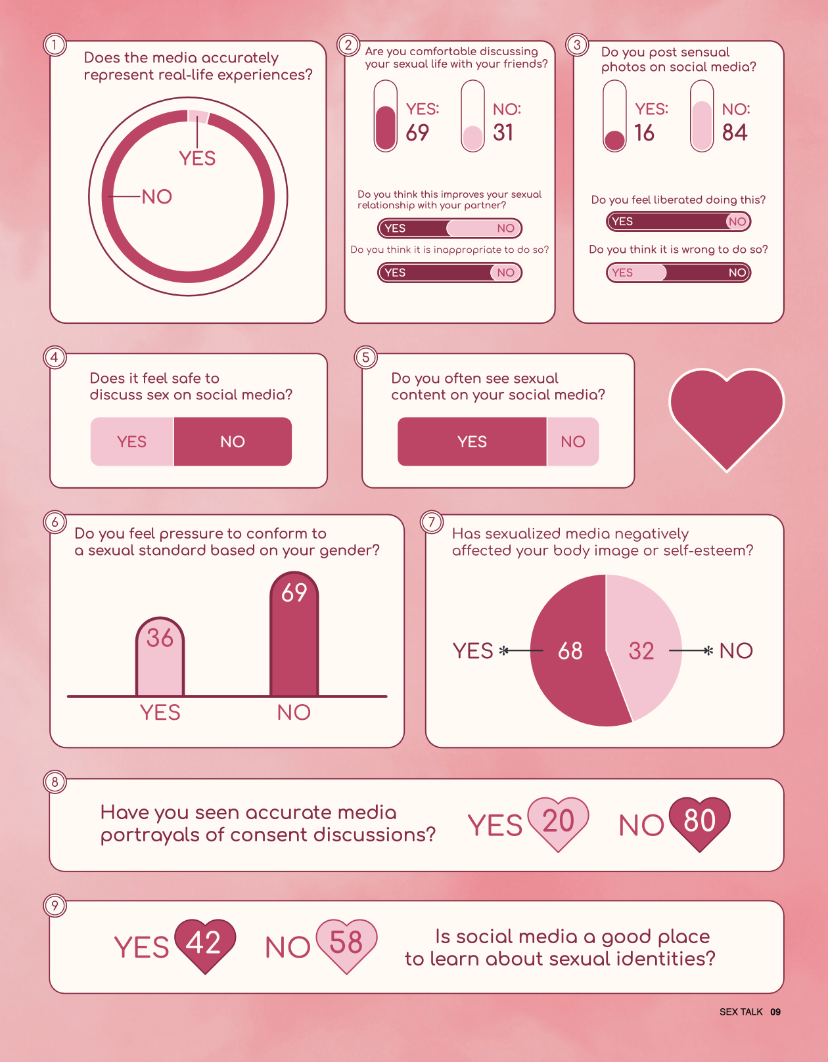Sex. What was once spoken of in whispers is now glorified in all forms of media. Gen Z deems themselves as the most sexually progressive generation. According to a study published by King’s College London, 67% of Gen Z views casual sex as justifiable while Millennials are at 55% and Gen X is at 40%. Do we as a society talk about sex too much? And is this sex-talk beneficial or harmful?
Popular TV shows like Euphoria and The Idol display explicit sex scenes. Online, Instagram models pose in skimpy lingerie to promote their OnlyFans, while TikTokers perform sexually suggestive dance moves on the “For You” page. Off the screen, sex is a conversation starter as people openly describe their one-night stands and ask for advice on how to improve their sex life.
People’s expectations of sex are shaped by where and how they learn about it. The media has become a classroom for sex, and everybody is a student. What the media doesn’t teach is the reality of people’s sexual experiences. This includes how the media’s portrayal of sex can negatively affect their body image, intimacy, and the standards they set for themselves and their partners.
We interviewed 100 Fullerton College students about their takes on society’s openness about sex. All respondents agreed that sex is a big part of social media—but we found that students are split on the media’s role in sexual exploration. Also, 94% of them believe sex is portrayed inaccurately by the media. In addition to our questions, students gave us their insight on the value of sex, sexual pressure and safe sex.
Taken from the Fall 2023 print issue of Inside Fullerton. Read it here.




